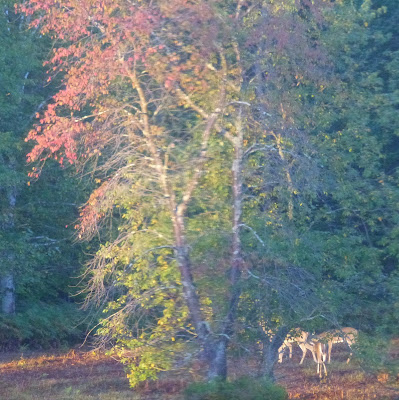This is the Set of Five who are the youngest ducklings of the year at this point.
Having a little snack in evening sun tonight. Young mallards.
Back in April, I planned to read the day's entries in The Assassin's Cloak; an anthology of the world's greatest diarists; edited by Irene and Alan Taylor. Canongate Books, Great Britain, 2000, each day. I put the book on my bedside table and almost immediately put other books on top of it. Today it is back, and here is the entry I chose for you, one of three anthologized for today.
People always talk about climate, about good air. It's what's underground that counts, that influences us. Paris has good foundations, sand. New York has metal underpinnings. Pagnol says Americans try to get off the ground--they invent crepe soles and jump up on tables; they build skyscrapers. I work much more easily out at sea. In our villages, disease and madness come from underground. There are villages in the east of France (iron mines) where cases of insanity are past counting. In Milly, the subsoil is sand and water. It is important to be aware of the foundations where you live.
Jean Cocteau
(page 375)
Do you keep a diary? How faithfully? I wish I had, , ,
And what is underground where you are right now? Do you know?
And what is underground where you are right now? Do you know?
























